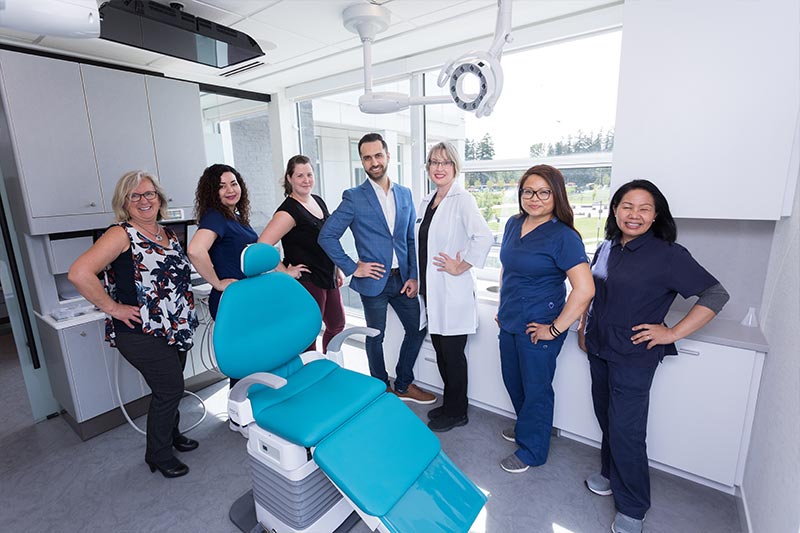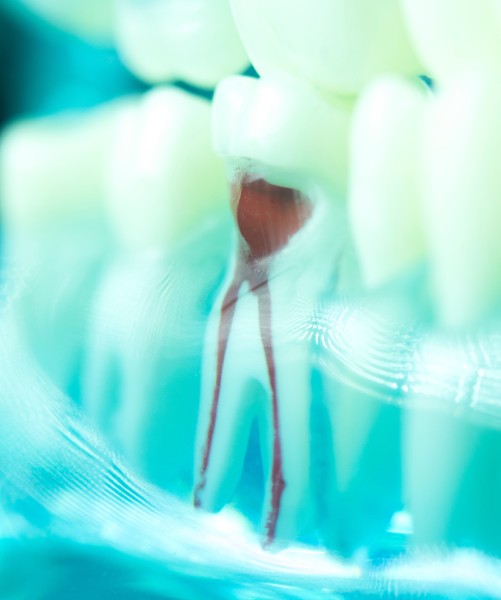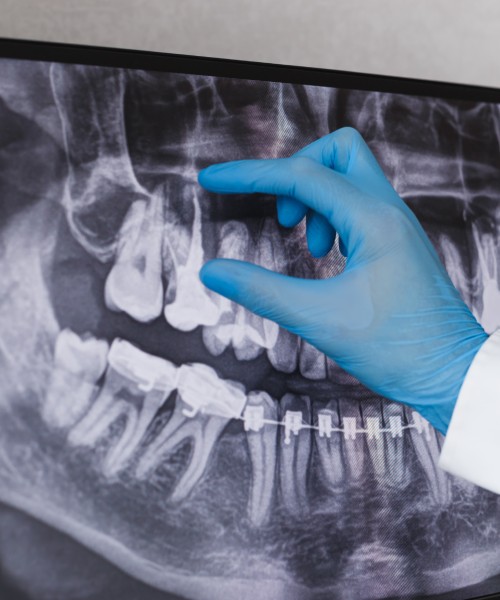Endodontics In Vancouver
Campus Dentists offer endodontic services to meet your individual needs. Our dentists have extensive training in root canal procedures and provide exceptional dental care to support your well-being.
What is Endodontic Treatment?
Endodontic treatment, commonly known as root canal therapy, is performed when the pulp inside the tooth becomes inflamed and infected. In the majority of cases, your dentist will perform your root canal treatment in the clinic. However, in more serious cases where a larger portion of the tooth is infected, you may be referred to an endodontist specialist for treatment. The aim of endodontic treatment is to save your natural teeth and ensure a healthy smile.

What Is the Root Canal?
Inside the hard outer layers of the teeth is a soft tissue called dental pulp. This pulp contains nerves, connective tissue, and blood vessels, which are important for supplying nutrients to the tooth during early development. The pulp extends from the tip of the tooth all the way down to the roots.
Why Do You Need a Root Canal?
When the tooth’s surface becomes damaged or decayed, bacteria can infiltrate the tooth, causing an infection; this can result in an abscess, causing pain and swelling of the surrounding gums.
It is essential that the early infection be treated quickly to prevent it from spreading further down the tooth. When left untreated, the infection can spread into the tooth root, which may result in tooth loss.


What Are Signs You May Need a Root Canal?
There are several signs to watch for that might indicate the presence of an infection or tooth abscess.
- Cracked or chipped teeth
- Any lingering sensitivity to heat or cold
- Tooth discoloration or a darkening of the gums
- Swollen gums
- Pain while chewing or biting
If you notice any of these symptoms, it is recommended that you schedule a visit with your dentist to get a check-up. It is best to detect issues early to prevent a root canal when possible or make the root canal procedure easier.
What Is the Root Canal Procedure?
The root canal treatment can take anywhere from 30 to 90 minutes, depending on the severity of the infection.
- Your root canal specialist will give you a local anesthetic to numb the area.
- They will then place a rubber dam around the infected tooth. This helps to protect your tooth from bacteria in your saliva.
- An opening will be made in the tooth using either a drill or a laser.
- The dentist will then remove the damaged portion of the pulp and clean the area.
- The canal will be sealed.
- Your dentist will place a permanent filling to close the tooth opening.
What to Expect After a Root Canal
After you’ve had your root canal, you may experience short-term tooth pain. It is normal to experience some sensitivity and swelling in the area, but these symptoms should clear up within a few days.
What To Eat After a Root Canal
After your root canal procedure, it’s best to refrain from eating until the numbness subsides; that way, you can avoid accidentally biting your tongue and gums. Once the numbness has worn off, eat only soft foods that require minimal chewing. Yogurt, eggs, fish, soups, and applesauce are good options for the first few days. Steer clear of hard, crunchy, and hot foods as they may aggravate the treated area and cause discomfort.


How to Prevent the Need For a Root Canal
To help keep your teeth looking and feeling their best, it is essential to practice good dental hygiene.
Implement a Daily Hygiene Routine
Brush your teeth twice a day with fluoride toothpaste. Use a soft bristle brush, and make sure to clean all sides of each tooth. We also recommend flossing your teeth daily to remove food particles that are stuck between your teeth and gums.
If you have questions about brushing and flossing techniques, our hygienists are always happy to advise!
Avoid Sugary Foods
Keep in mind that sugary foods such as candy and soda pop can cause your teeth to decay, so limit your intake and wash or clean your teeth to remove the sugars that can stick to them.
Schedule Regular Dental Visits
Regular dental visits are crucial for detecting infection early. Your dentist will check for cracks and chips you may be unaware of. Dental X-Rays are also helpful for detecting early infections that may not show any symptoms yet.

